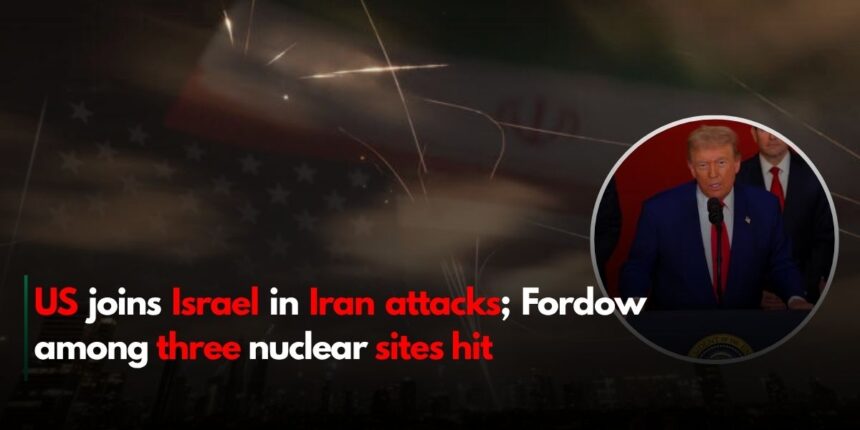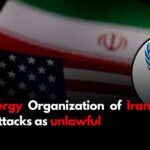The United States officially joined Israel in airstrikes on Iranian nuclear sites earlier this week, targeting Fordow, Natanz, and Isfahan. This is a big step up in the violence in the region. President Donald Trump announced this, and it is the first time that Washington has directly sent troops into the continuing conflict between Iran and Israel.
The U.S. Gets Involved
Over the weekend, President Trump said that B-2 stealth bombers led the attack on the heavily guarded Fordow site. These bombers were armed with rare 30,000-pound GBU-57 Massive Ordnance Penetrator (MOP) bombs. against the same time, U.S. submarines fired Tomahawk cruise missiles against Natanz and Isfahan. Trump called the operation a “spectacular military success” and told Iran that its destiny depended on whether it chose peace or disaster.
Fordow: An Underground Fortress Fordow, which is built inside a mountain near Qom, is thought to be almost impossible to break into with regular weapons. Defence experts say that the MOP’s power lets it break through about 60 meters of earth and concrete, which makes it the only bomb that can reach the facility. Experts say that full destruction is still questionable because of Fordow’s depth and strong design.
Legal and Political Consequences
The attacks didn’t get the go-ahead from Congress, which made senators angry since they say Trump didn’t have the legal right to do them. A number of Democrats called the action against the law. At the same time, UN Secretary-General António Guterres called the attack a “dangerous escalation” and urged diplomatic channels to stop the fight from getting out of hand.
Effects on the region
The Iranian foreign ministry called the operation a “illegal act of aggression” and said that Iran has the right to defend itself under international law. Tehran said there were no releases of radioactivity and that the sites had been evacuated ahead of time. Tehran also asked for an emergency meeting of the UN Security Council.
Benjamin Netanyahu, the Prime Minister of Israel, applauded Trump’s move, saying it was a turning point in stopping Iran from getting nuclear weapons.
Risk of escalation and diplomatic pressure
Iran’s leaders have warned of possible reprisal and put their military on high alert. Leaders throughout the world are worried that the strikes could lead to a retaliation from Tehran, which could include missile, drone, or cyber warfare, making things worse.
Both nations say that the bombings are meant to stop a nuclear weapons race, not start a bigger war. But experts say that diplomatic outreach and steps to lower tensions are now very important.
Last Thoughts
This was the first time the U.S. has directly struck Iranian nuclear facilities. It was a strategic show of force that shows how real the threat has become for Washington and its allies. But the legal path ahead, worries about the region breaking apart, and Iran’s reaction strategy will decide if this operation is the beginning of a settlement or the start of a longer battle.










